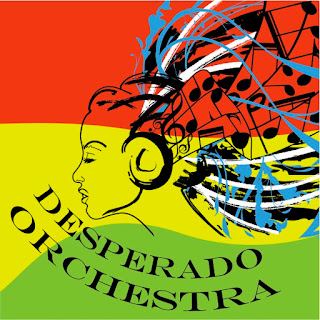Tribute to the Blues: A Blog Series to Celebrate the African American Musical Diaspora
The Blues
The United States, a melting pot of the west. A country with
some of the most diverse communities of citizens from anywhere and everywhere
in the world, and a country that many people of the world considered to be at
the forefront of modern thinking, technology and industry. We as Americans and
pioneers of the modern world share so much of our cultural identity with the
world. How do we recognize those that we influence? Maybe we never realized or maybe
we never wondered. Do you ever ask how much of our history is passed or known
amongst old and new generations of global citizens? Do you ever wonder if there
is one root of American culture that is exposed in another country’s modern
trends? What I am about to share is not a belief, but an analytical thought
brought about through the years of my musical training, professional life, and
research. It is a reason for us to remember who in American history has given
the world a new tool, a new perspective and a unique voice to share and to this
day is continuously inspiring young and old generations of global citizens. Our
musical roots and the influence of blues is the cultural thread American culture
spread throughout the world. Today blues music reaches various global regions
inspiring musicians from young to old, and transforms and inspires new approaches
to playing and creating music.
In the 1960s, college students from all over the USA were
embracing the blues calling it the true American roots (Blues America, BBC Four). Thanks to the works of Alan Lomax,
exposing these young people and their open minds to Blues musicians form the
Mississippi Delta, we now embrace the blues as American tradition. The
cataloguing of numerous blues musicians by Lomax helped keep intact,
unadulterated and undisturbed by the technological trends and modern age, the
root of the African diasporic influence in America. With the spread of western
culture, and the major role that America has taken to be at the forefront of
globalization, the blues can never be denied as a part of the modern American
roots culture. The musicians of this cultural art form, from the 1800s on to
the 1950s, with instruments in their hands and folklore lyrics to sing, embodied
courageousness and creativity. Blues music developed independently from the
church and masters or plantation managers. These Blues musicians were able to define
a sound that did not need the approval of anybody. It only needed the open
hearts and ears of an understanding and participating audience.
The blues sound is a cultural musical vernacular formed by
the African diaspora in the USA (What is
This Thing Called Jazz? p 293). Many Americans from an array of different
cultures have also contributed to the blues, but I must stress that it was the
creation of the cultural sounds by Africans in the USA that is a singular
catalyst of what started the blues. It is not an art form that was stumbled
upon or mystically created, it was an art form that was practiced and that
still maintains aspects of the African tradition (The Land Where the Blues Began, preface xiii). As an art form that
held an oral tradition, the Blues was taught by elders to youth. Blues
musicians passed on one essential component uniquely intertwined with the art
form that I believe is the most important aspect of the music— creativity. If
reading this you are highly critical, then I would suggest reading some of
Alfred Murray’s writings, and consider his thought, that “[an] observer’s
inability to understand the meaning and function of the blues is but more proof
of their misreading of the humanity of African Americans and their relationship
to the broader U.S. culture.” (What is
This Thing Called Jazz? p 295). It is through understanding the Blues as a
specialized skill that we can study and understand how the blues has carried
African traditions, inspiring creativity and art that continues to permeate
American and world culture.
The African diaspora holds one of the most creative moments
in the world’s cultural history, and it should be recognized and celebrated
without request or hesitation. The horrific acts that African Americans lived
through and the traumas they survived throughout the Americas, needs to be
remembered. Just as necessary is the recognition of something so beautiful as a
completely new approach to writing a song, something so unique within the African
interpretation of music on a western instrument, and something so rare with
infectious melodies that inspired so many more musicians down the time line of
American history and throughout the world. It is the right of the African
American community to be recognized as a major cultural contributor to the
American identity. And as globalization becomes the new function of our trade,
communication and influences, it is critical that Americans keep in the open
and on the table, the role Africans in the Americas had influencing cultural
development and ingenuity in America and around the world.
Notes:
Blues America, BBC
2013
What is This Thing
Called Jazz? Eric Porter, © 2002 by the Regents of the University
of California, University of California Press, Berkeley, Los Angeles, London.
The Land Where the
Blues Began Alan Lomax, © 1993 by Alan Lomax, The New Press, New York
2002.
In the Near Future:
Blues influences in UK.
African influences in the Caribbean.
Blues influences in the Pacific.



Comments
Post a Comment